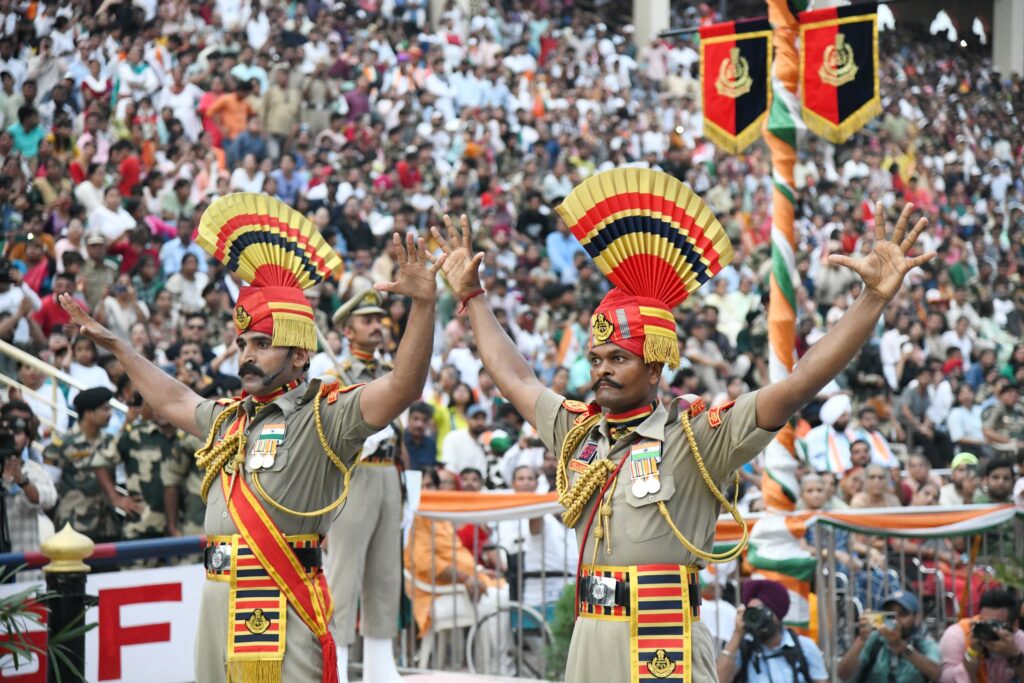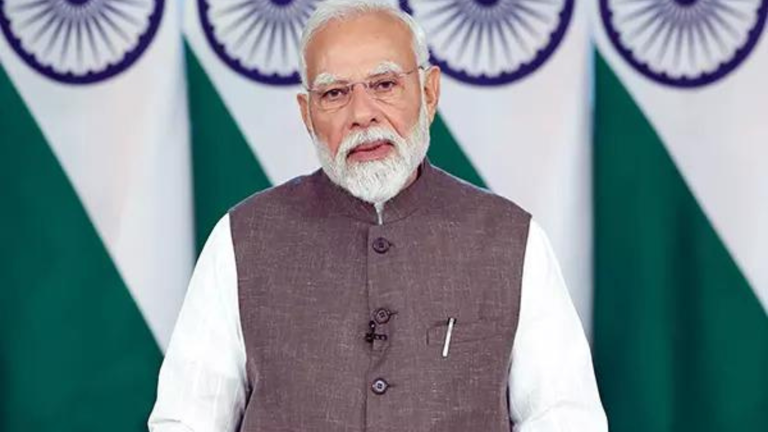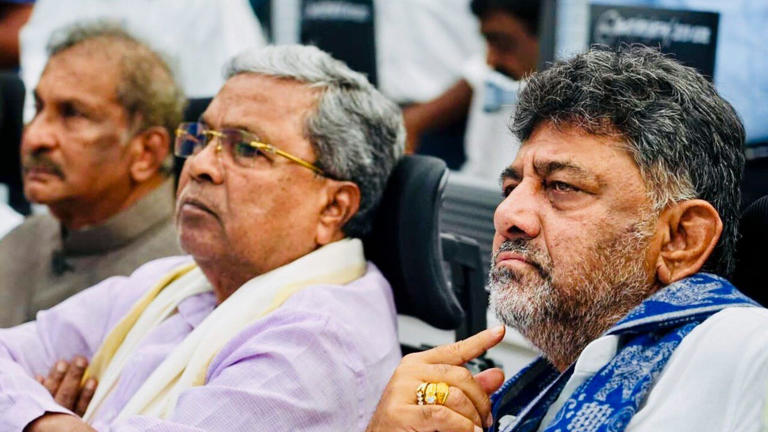Why Was the Beating Retreat Ceremony Suspended at the India-Pakistan Border?
The BSF called off the ceremony on May 8, just one day after launching Operation Sindoor, a high-level military response to the April 22 Pahalgam terror attack, which killed 26 civilians in Jammu and Kashmir. The suspension reflected rising military and diplomatic tensions along the India-Pakistan border. Operation Sindoor is a counter-terror operation initiated by Indian security forces following the deadly Pahalgam attack. Though official details remain classified, sources suggest it involved targeted strikes against terror modules operating across the Line of Control (LoC), particularly in high-infiltration zones. The operation intensified regional tension, prompting the BSF to suspend public-facing ceremonies at the sensitive Punjab border.
The Beating Retreat ceremony has been paused in the past during high-alert situations or escalations, such as post-Pulwama in 2019 or during peak COVID-19 restrictions. However, this was among the longest suspensions in recent years, lasting 12 days. Beyond its symbolic significance, the ceremony is an economic lifeline for many border towns. Restaurants, local guides, shops, and transport services rely heavily on the daily tourist influx. The suspension caused a temporary economic dip in nearby towns like Amritsar and Ferozepur. Additionally, it impacted public morale in a region where the ceremony is more than just a spectacle—it’s part of the cultural rhythm.
What Has Changed in the Resumed Beating Retreat Ceremony and What Lies Ahead?
As of May 20, 2025, the BSF has officially resumed the Beating Retreat ceremony across all three key border locations in Punjab. However, it has returned in a scaled-down format.
#BREAK: After a 12-day pause, #BSF to resume the iconic Beating Retreat ceremonies at Attari-Wagah, Hussainwala, and Sadki borders from tomorrow with gate closed & no handshake.
— Ravinder Singh Robin ਰਵਿੰਦਰ ਸਿੰਘ ਰੌਬਿਨ (@rsrobin1) May 19, 2025
The ceremonies were suspended on May 7 amid heightened India-Pakistan tensions. pic.twitter.com/Wcit81q7dN
In the current security climate, certain diplomatic gestures have been suspended. This includes:
- No handshake between BSF and Pakistan Rangers
- Border gates remain closed during the flag-lowering process
These changes reflect a strategic decision to avoid symbolic engagement with Pakistan during a period of unresolved tensions.
The resumed event was accessible only to media personnel, essentially making it a soft relaunch. From May 21 onward, the ceremony is open to the general public, which should revive tourism and local economies dependent on daily footfall. The BSF has enhanced surveillance, tightened access control, and increased on-ground personnel to ensure safety for both attendees and soldiers. While the ceremony’s visual flair remains intact, the absence of direct cross-border interaction underscores the security-first approach currently adopted by Indian forces.
Resuming the ceremony sends a dual message: India is not intimidated by cross-border threats and will maintain national traditions despite provocations. The decision to scale it down is also a clear strategic signal to Pakistan that diplomatic thawing will not occur without accountability, especially in the wake of terrorist incidents.
How does the public feel about the resumption?
There’s a palpable sense of relief and pride among locals, veterans, and tourists alike. While the lack of handshakes may appear cold, many support the BSF’s caution given recent events. Moreover, people are glad to see the ceremony return—even in its trimmed form—because of its emotional and patriotic significance.
That largely depends on the evolution of Indo-Pak relations, the outcomes of Operation Sindoor, and further geopolitical developments. If tensions reduce and confidence-building measures take place, the full-format ceremony—with open gates and handshakes—might resume. Until then, the current version balances public engagement with national security imperatives.
Just ten days after India abruptly halted its brief military operation — insisting it had merely paused it — the country appears to be returning to business as usual, marked by the resumption of a colonial legacy: the "Beating Retreat" ceremonies at three border crossing points.…
— Brahma Chellaney (@Chellaney) May 20, 2025
The Beating Retreat is more than ceremony; it’s a mirror of India’s diplomatic posture, border readiness, and national unity. Its temporary halt reminded the nation of the fragility of peace, while its return—though modified—underscores India’s resilience and commitment to safeguarding both tradition and territory.





















